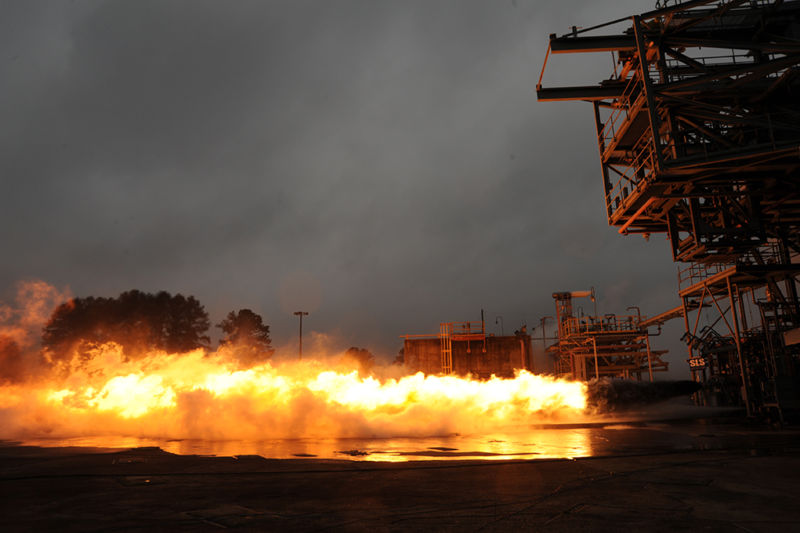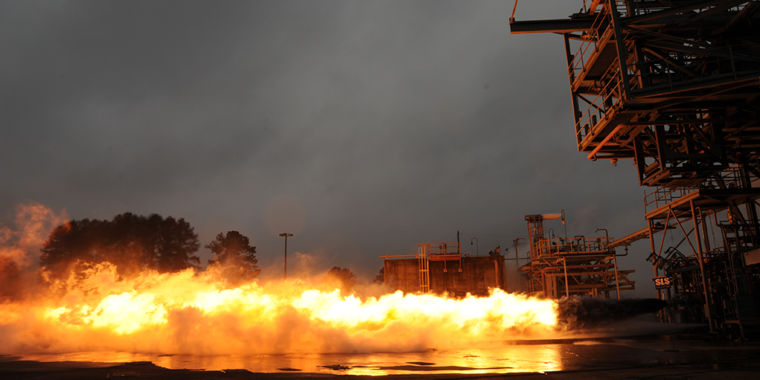
/ On Jan. 10, 2013, the Saturn V F-1 gasoline generator performed a 20-2d sizzling-fire take a look at. Engineers are ending a series of tests at Test Stand 116 positioned within the East Test Direct at NASA’s Marshall Direct Flight Heart in Huntsville, Ala.
It is uncommon that a e book about as excessive-minded and serious a subject as rocket science manages to be each and every highly informative and laugh-out-loud silly. But when there would possibly maybe be a greater design to list John Clark’s Ignition!, I’ve yet to gape it. A cult classic among chemists, a few of the leisure of us stumbled on the e book by design of one of Derek Lowe’s tales of hilariously provoking chemical compounds.
It is the place apart I learned words adore hypergolic, which describes how eager one chemical is to spontaneously ignite, and realized that these forms of mid-century scientists ought to own had as grand factual stuff as any take a look at pilot. But there change into hitch—Ignition! change into out of print, so reading it though-provoking an interlibrary loan (or a dodgy PDF, which surely I cannot condone).
But now, Rutgers University Press has made up our minds to grime it off and reissue it. From Might perchance maybe also just this can even eventually be doubtless to place apart a bodily copy on one’s bookshelf. And honestly, if you own purchased any passion in chemistry—in particular the division of it animated violent, filled with life, and once rapidly explosive reactions—it be a e book it’s good to read.
Ignition! is a history of liquid rocket propellants, alternatively it be additionally a history of cold battle and the house bound, suggested from a express level of focal level on. Clark change into the executive chemist at a rocket lab in Fresh Jersey, operated first by the US Navy, then US Navy. He change into a central resolve in what change into a moderately little arena, one with a particular motive. This wasn’t science appropriate for science’s sake, but a quest to search out current oxidizers and fuels for rocket engines, to manufacture greater missiles or house probes.
The propellants being requested for would ought to be liquids within the course of a vary of temperatures, and preferably completely innocuous and without yelp saved till reacting violently together upon mixture. Alternatively, if you guessed that nearly all the chemical compounds right for filled with life reactions in a rocket on the overall are inclined to react energetically in many different conditions—on the overall with no provocation the least bit—Clark’s tales of « catastrophic self-disassembly » would possibly maybe perchance well now not be completely gorgeous.
The dry wit with which he recounts these history lessons would possibly maybe perchance well be the greater shock, for right here’s a in actuality silly read. He snipes in regards to the US’ failure to exercise the metric scheme, grumbles about then-current computer programs in a scheme that would soundless be familiar these days, and quite loads of anecdotes own diminished me to tears. (The chronicle about an Admiral who wanted Clark’s Naval Air Rocket Test Section to fall a rat—sex now not specified—right into a ten,000-gallon tank of 90 p.c hydrogen peroxide is an efficient one, as is the one in regards to the rocket scientist sitting subsequent to Scott Crossfield on an airplane.) That humor helps the accessibility, and so long as you retain in mind some excessive college chemistry you wouldn’t own a field with the science both.
Some of his predictions for the realm, made in 1971 after retiring from what by then change into known as then Liquid Rocket Propulsion Laboratory of Picatinny Arsenal, did now not stand the take a look at of time. The US did now not arena one more liquid-fueled ICBM, nuclear rockets grew to alter into out to own an insurmountable environmental field, and hydrogen did certainly own a considerable-stage role within the Direct Shuttle. But I own it be dazzling to chop him a diminutive bit slack right here; despite everything, this is rocket science we’re talking about.


Commentaires récents